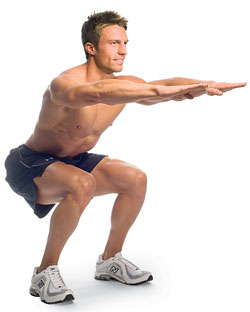There is no other
sport in the world where so much time and effort is spent on preparation for
contests as bodybuilding. Yes, bodybuilding is a sport. The sport side of
bodybuilding is the intense training that goes into building musclewomen and
musclemen.
It takes a tremendous effort to build a body that is fit for
showing. The perfection of the body is the common goal of building either men’s
or women’s bodies, but the approach has to be different because of the
differences in their anatomy and metabolism.
The female body is not capable of developing the massiveness
of the male body without chemical assistance. The exercises and natural diet of
male bodybuilders produce different results in women.
Musclewomen still lift weights, they eat high-protein meals
and they take natural supplements. Their bodies respond with great
conditioning, defined musculature and even a “six-pack”, but without the muscle
size of their male counterparts.
Bodybuilding for women has gone through a number of phases.
In the early days a smooth, shapely figure was the goal. Then came massive
muscular development spurred by the use of anabolic steroids and male growth
hormones. Some of the female bodybuilders became so huge and muscular that they
looked like men.
Currently, the emphasis has returned to a more natural look
for women bodybuilders. They perform a lot of resistance exercises that give
them definition and muscularity, but they still retain their femininity (think Linda
Hamilton in Terminator 2).
Building a musclewoman begins with weight and resistance
training. Every muscle group of the body is worked to complete exhaustion at
least once a week. But women’s bodies are much different than men’s and their upper
and lower body shapeliness requires different exercises.
More emphasis is placed on hip flexors, adductor and abductor
muscles in the inner and outer thighs. Squats and thigh-biceps curls work the
quadriceps and hamstrings, while calf raises finish the lower body.
For the upper body, women work their chest muscles with barbell
or machine presses, dumbbell or machine flies, shoulder presses and arm work.
The arms are pumped with barbell and dumbbell curls, triceps
press-downs and French presses on the bench. An advanced female bodybuilder
will lift an impressive amount of weight in every workout.
Nutrition is the complementary side of the program for building
musclewomen. A diet with about 25% of the calories coming from protein, 40%
coming from complex carbohydrates and the rest from fats and fiber is used to rebuild
the tissue damaged by intense workouts.
Dietary supplements should also be taken: Protein powder
mixed with raw milk, amino acids to help with fat burning and protein
metabolizing. A lot of eggs should be eaten for the best source of useable
protein.
Soluble oil like wheat germ oil should be ingested for energy
and endurance, kelp and desiccated liver tablets for a concentrated protein
boost.
Competition is the final aspect of women’s bodybuilding. As
women’s bodies are different to men’s, they are also displayed differently for
the most part. While they do adopt some of the “male” poses, like flexing the
arms, shoulders and back, women’s bodybuilding poses are typically more
graceful and intended to show the highly developed female body at its best.
In short, building a musclewoman is a lot like building a
muscleman, but the approach is a little different to take into account women’s
form and metabolism. The results, however, are just as impressive as mens’!






























